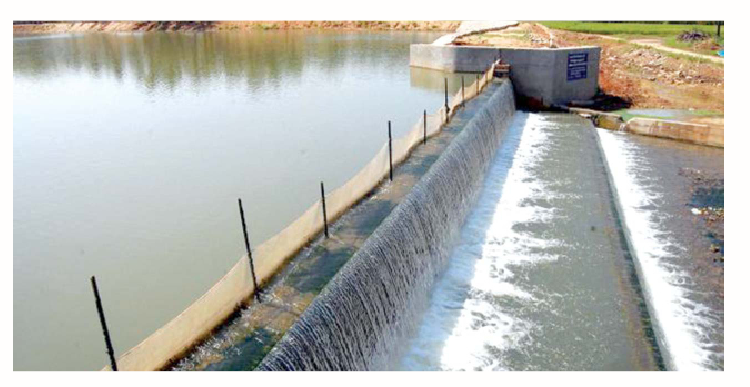Still on the ongoing melodrama for about a month now, at the house of representative over the controversies surrounding passing into law the newly reintroduced National Water Bill of water resources. Some members of the federal lawmakers who negated the proposed bill expressed that, the bill has been selfish in its entirety by favouring some parts of states and neglecting others.
The Bill criticized states’ and stakeholders’ involvement in water resources.
This is with the intention of the federal government to outrightly take control over the resources surface, and underground water, as well as issuing a license policy for commercial use. Not just that, another ill intention of the bill is in order to implement the obnoxious Rural Grazing Agenda policy, RUGA and a land grabbing ploy to favour herders through the back door.
No wonder the influx of the Fulani herders and their cows all around the cities, with no one to challenge their audacity. This has led to high level of insecurity and an economic meltdown by bandits, terrorists instigated by supposed Fulani herdsmen in the country, and many also expressed the fear that the purpose of the promoters of the bill is to provide land for the herdsmen.
Further argument on the proposed Bill is the policy by the federal government guiding the drilling of boreholes in a household either for private or commercial purposes. It is not an easy come by with the stress and opposition to accrued the policy.
Senior Advocate of Nigeria and Human Rights Activist, Chief Femi Falana (SAN), had said that “contrary to the provisions of the proposed bill, the federal government cannot authorize or license persons who may want to sink boreholes outside the federal capital territory.” He further said it was just an unfortunate situation.
The re-introduction of the National Water Resources Bill was raised by the Chairman of the House Committee on Water Resources, Hon. Sada Soli (APC/Katsina) at the National Assembly in June, 2022 did not come as a surprise.
Soli declared that the proposed Nigeria Water Resources Bill has not introduced significantly new items to the already existing and operational Water Laws in Nigeria, but a repackage of the already existing law. While criticizing opponents of the Bill, including the Benue State Governor, Dr. Samuel Ortom, and Nobel laureate, Prof. Wole Soyinka, Soli boasted that the newly reintroduced Bill will gain its ground, more so that the supposed objectives of the federal government on water and its related matter has come to stay. Unfortunately, his motives along with his promoters had been rejected by the house. It is in the light of these among others, that the House of Representatives considered it a threat to the nation before it could divide the nation and tear it apart.
Recall that this same obnoxious and toxic bill was presented and rejected by the House during Speaker Yakubu Dogara’s tenure.
Meanwhile, in the cause of the week, there was an alleged plot by the house of representatives to impeach the speaker of the house, Femi Gbajabiamila should he fail to pass the Bill into law, just because some members of the Northern caucus have concluded the plans to impeach him for reportedly working against their interest in the passage of the water Bill. This was based on the fact that those advocating for the bill were from a certain section of the country that will benefit directly from its purpose.
The Deputy Speaker of the house Idris Wase reacted to the alleged report that what members of the House and Nigerians at large need at the moment is the ability to operate as one in tackling challenges facing the country and not be “carried away by emotion and sentiment. We remain a symbol of democracy in Nigeria”.
On his part, the minister of Water Resources, Engr. Suleiman Adamu explained that contrary to the perception of Nigerians, the Bill is to manage all surface and groundwater for all, both for domestic and non-domestic use, as well as for irrigation, and agricultural purposes.
Adamu mentioned that the laws in the Bill are an amalgamation of already existing Water Resources laws re-enacted with necessary modifications to bring them in line with current global trends and best practices in Integrated Water Resources Management (IWRM).
He further explained that “The Bill provides for professional and efficient management of all surface and groundwater for the use of all Nigerians such as domestic and non-domestic use, irrigation, agricultural purposes, generation of hydroelectric energy, navigation, fisheries, and recreation.
“It will no doubt ensure that the Nation’s Water Resources are protected, used, developed, conserved, and managed in a sustainable manner for the benefit of all Nigerians.
“The purpose of the National Water Bill is to establish a regulatory framework for the Water Resources Sector in Nigeria through the provision of equitable and sustainable development, management, use, and conservation of Nigeria’s surface and groundwater.
He also said that “I am convinced beyond any doubt that the National Water Resources Bill is relevant and appropriate for Nigeria given the fact that more than 80 percent of the nations around the world have subscribed to the concept of Integrated Water Resources Management (IWRM), which seeks to promote citizens’ rights, eliminate hindrances to the management of water as an economic resource and help to empower the people.”
But Adamu further expressed displeasure over the misconception that has surrounded the passing into law the Bill before National Assembly, despite the benefits imbibed in its content. He encouraged Nigerians not to be distracted even in times like this to reshape water resources.
“Sadly, the Bill has generated so much controversy and one of the reasons for such is that many of those criticizing the Bill have not even seen the contents nor read its provisions.
“The group of those opposing the Bill depend on second-hand information to draw their conclusions.
“It is a disappointing commentary that at a time when Nigerians are seeking improved service delivery in the water sector, the very policies and reforms required to achieve progress are being undermined by some unpatriotic people because of cheap politics. They should not be allowed to succeed”. He buttressed.
“Although there are some people that have some vested interests, like regulation, especially for commercial use of water, this is something they do not want to do.
“Some of them do not want to pay the necessary taxes to the government for mining these waters, as they are mining the water illegally,” he reportedly said.
In spite much efforts by the minister to defend this erroneous proposed Bill by the minister, governors of the 36 states of the federation on Tuesday, rejected the passage of the National Water Resources Bill 2020, stating that the reintroduction of the proposed Bill is baseless.
It was unanimously agreed that the reintroduction of the proposed Bill does not adequately address the interests of the states and is not consistent with the provisions of the Constitution of the Federal Republic of Nigeria. They described it as a ploy by the federal government to secure the lands around the rivers in southern Nigeria to resettle the foreign herdsmen after the failed cattle colony and Rural Grazing Area (RUGA) initiatives.
Ekiti state governor and Chairman of the Nigeria Governors Forum (NGF), Kayode Fayemi, who briefed other members, disclosed the position on Tuesday after the 5th teleconference meeting of the forum, that the bill should be reviewed to accommodate all concerned states.
“The Bill, according to the Forum, should be reviewed with a view to accommodating the concerns of all states
“On the reintroduction of the Bill of the National Water Resources Bill, Governors argued that the Bill does not adequately address the interests of the states and is inconsistent with the provisions of the Constitution of the Federal Republic of Nigeria,” he stated.
In addition, it was believed the bill displayed religious bias, in favour of Northerners and other Muslims and that, if passed into law, it would hinder the current move towards delegation of powers.
Also speaking, National Coordinator, Comrade Emmanuel Onwubiko, in a statement, said “The fixation of Buhari and his kinsmen from Katsina State to make the bill a law is condemnable and self-serving.
“The National Assembly should not empower criminality by passing this despicable bill. The President should also desist from pushing this heinous and divisive agenda to see the bill assented into law.”
Now that the proposed National Water Bill has gotten an ill welcome and outright rejection by governors and other stakeholders, what is the fate of water resources, and what it encompass?
The proposed bill was initially presented and endorsed by the National Council on Water Resources in May 2016 which was later presented to the 8th National Assembly in 2017, until its controversial reintroduction for passage into law.





